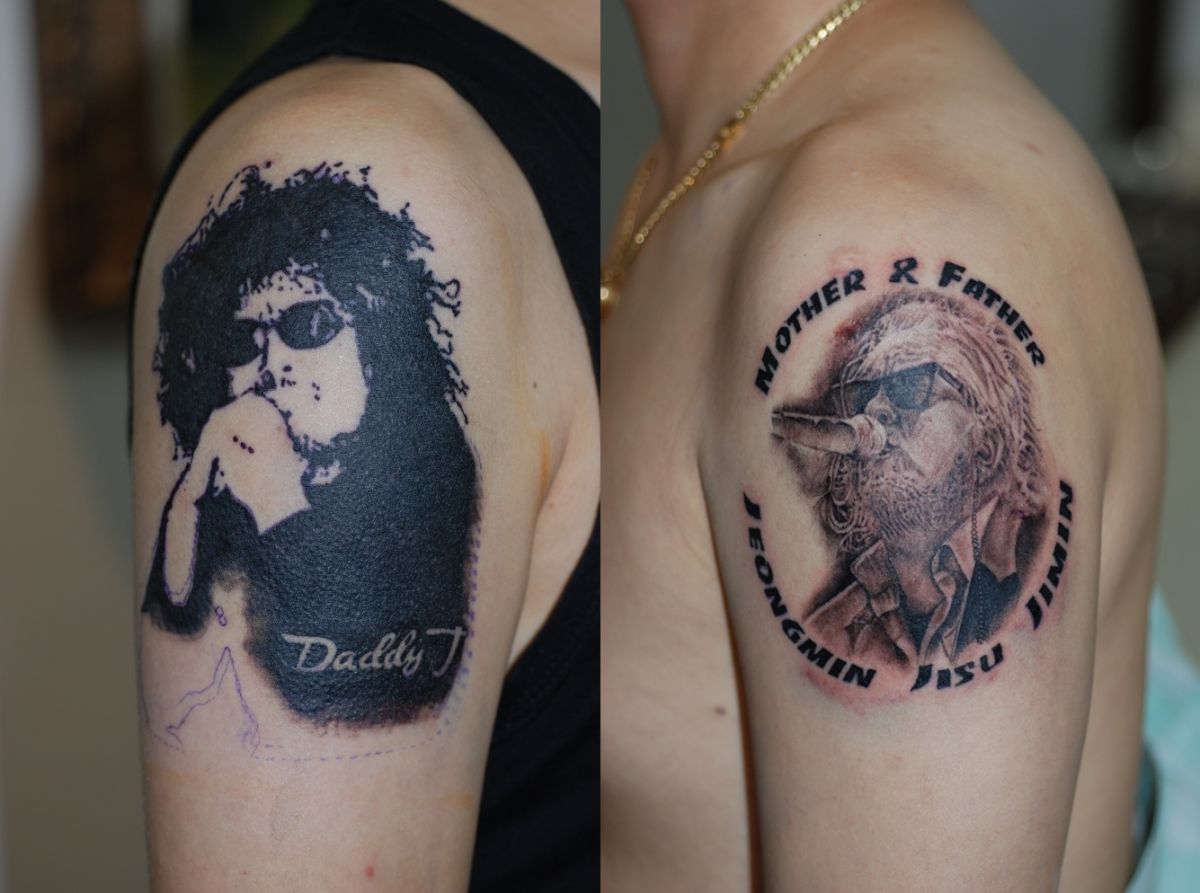
Based on my review of both Korean and foreign literature on this matter and my 16 years of clinical experience, I have summarized the reasons for getting tattoos as below. I believe that people get tattooed as a means to define one’s identity and sense of belonging, body decoration as an aesthetic self-expression, and a supplemental means of remembering.
The human race has devoted much effort in expressing and beautifying the self. Make-up is one of the many ways to beautify oneself. One’s body may be the most prominent canvas for expressing one’s identity. It may seem natural that people want to decorate or make permanent markings on their body, as the most noticeable and immediate form of self-expression. Accessories and make-up require repeated efforts and maintenance. However, tattoos are permanent and do not need continued care. This may be a key reason for the widespread use of tattoos for both religious and practical purposes since the ancient times.
Another significance of tattoos is the sense of belonging. In the Korean society, most people think of criminal gangs when they see tattoos. It is very common to see criminals with large tattoos on their body getting hauled up by police on the news. This strengthens the stereotype that criminals have tattoos. Most people stop at this and do not wonder why the gang members get tattooed. It takes more than a simple whim to make a permanent marking in one’s body. Tattoos are an effective symbol of one’s belonging in a certain organization or one’s status in such organization. You cannot just choose any tattoo design but need to choose the right one for your place in the society or organization. Tattoos are the most efficient, succinct way to express one’s sense of belonging. This is not just limited to gang membership. Some choose tattoos to express their membership in an academic group, professional organization, or army, etc. Their socioeconomic status or profession may differ but the reason for choosing to get a tattoo is the same. They seek to express their membership in a social group and a sense of belonging.
People also choose to get tattooed for aesthetic reasons. This may sound like a casual motivation but it is nonetheless a powerful one. The desire for aesthetic improvement is natural. Expression of membership or sense of belonging can be a rather artificial and arbitrary motivation, whereas the pursuit of beauty is a natural source of motivation and a much stronger impulse than a sense of belonging. Many people who visit my practice recently have gotten tattoos for this reason. Their reason is simple; because they think the design is cute and pretty. There is no complex explanation involved. It has to do with decorating the body. Men and women sometimes choose to get a tattoo simply because they feel like it. Tattoos are not just about one’s social identity. This is true regardless of the gender.
In the Ainu tribe, indigenous to Hokkaido of Japan, lip tattoos were mandatory for women who have reached a marrying age. Until the people from the main island occupied Hokkaido and banned this practice, the lip tattoo was an essential aesthetic component of every Ainu woman’s face. It was an aesthetic expression as well as a symbol for their readiness for marriage. The main island people saw this practice as barbarous and banned it. However, the Ainu women were strongly against this ban and resented having their traditional aesthetic expression taken away. Today, this tradition is reenacted in wedding ceremonies of the region.
Lastly, tattoos serve as a memento. This is the most common reason people requested tattoo procedures in my practice. People visit my practice to get a tattoo of the name of their loved ones or deceased family members. I am touched when my patients want to tattoo the dates of their father or mother’s passing or the name of their late wife, the place and date of first meeting her. Some even want to tattoo their dog onto their body. Tattoos serve as a good souvenir of a precious person or event in our lives. Some get a tattoo of a bible passage. Avid fans of a celebrity get tattoos of the celebrity’s face and name on their body.

Figure 1. A fan of a famous singer gets tattoos of the singer’s face.
In summary, tattoos serve a social function in a complicated social structure and is not merely a random act by an individual. Such a function has been maintained through various times and cultural contexts. The draw of tattoos is powerful and has survived since the ancient times. The expression may change throughout times and societies but the functions and motivations of tattooing remain strong and unchanged.
-To be continued



















